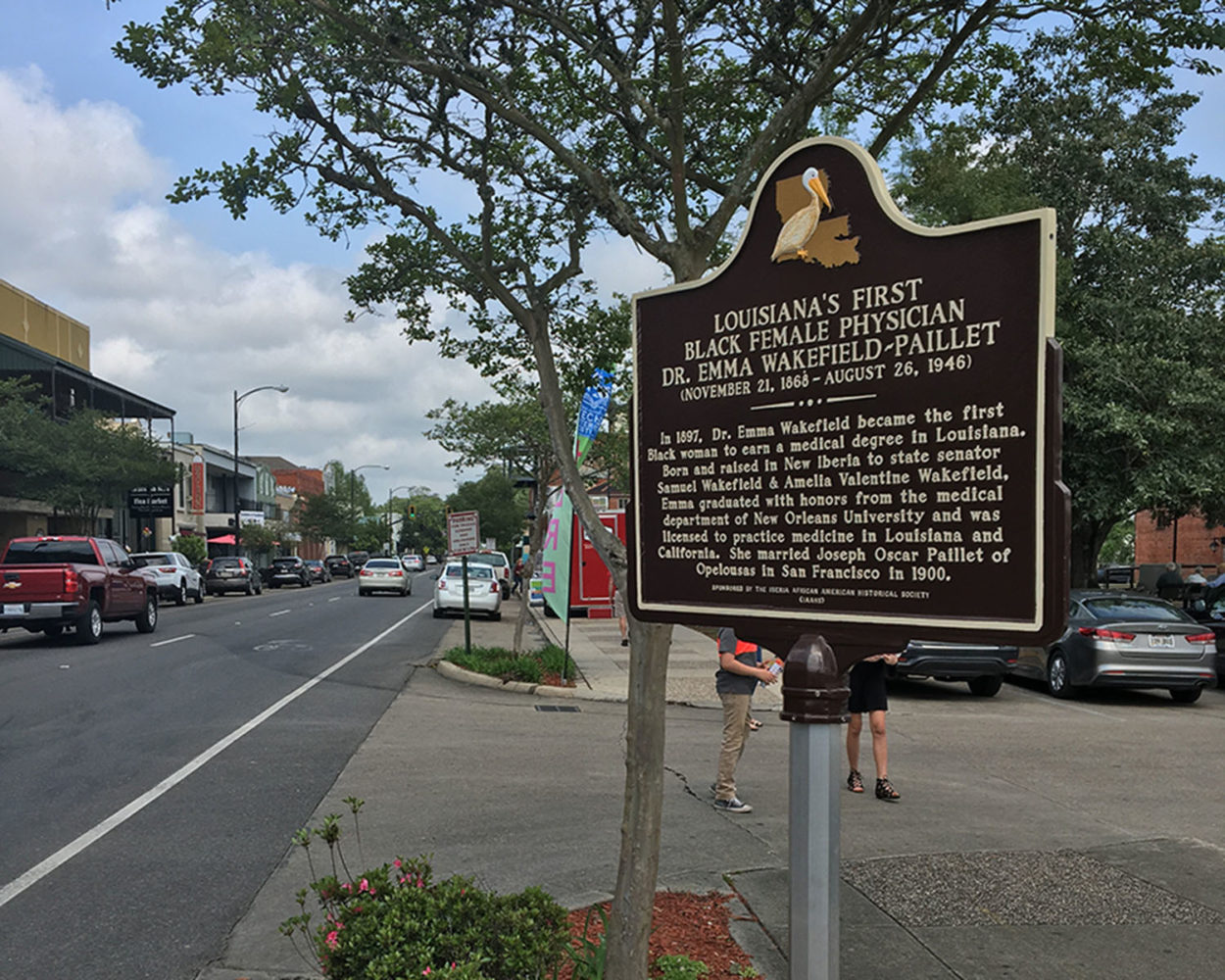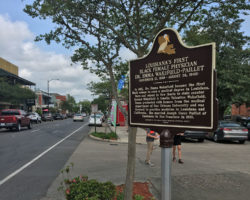Emma Wakefield-Paillet, MD
The first African American woman in Louisiana to earn a medical degree and practice medicine
Published: August 30, 2019
Last Updated: June 1, 2023

Photo by Morgan Randall
A new historical marker commemorating Emma Wakefield-Paillet in New Iberia.
Educated, industrious, and politically ambitious, Samuel served the young Reconstruction-era parish as postmaster, tax collector, colored school district director, and state senator. Samuel and Amelia desired more than anything to see their seven children educated and prepared to assume leadership roles in post–Civil War Louisiana. To this end, all of the Wakefield children received a prep school education at New Orleans’ Straight University, where Samuel was a member of the board of trustees.
Following the completion of her preparatory school education at Straight University, Emma Wakefield enrolled in the medical department at New Orleans University as one of three female medical students, the first women to be enrolled in the program. (In 1930, Straight and New Orleans Universities merged to form Dillard University.) By her 1897 graduation, Emma was the sole remaining female candidate for the medical degree.
Emma graduated with honors from medical school and sat for the Louisiana State Board of Medical Examiners examination on April 15, 1897. Of sixty-eight candidates, she was the only female and one of five who were black. Emma did so well that the following was recorded in board minutes: “The colored woman passed an exceptionally good examination and the Board made special mention of her case.”
After receiving her medical license, Emma considered putting her medical practice on hold for a year so she could attend a music conservatory in New York, as she was also an accomplished classical pianist. She must have had a change of heart, because in the July 3, 1898, edition of the New Orleans Times-Democrat, she ran an advertisement announcing the relocation of her practice in New Orleans to 1233 N. Villere Street along with her office hours. This advertisement establishes her as the first black woman to set up a medical practice in New Orleans.
Emma practiced medicine in New Orleans until she and other members of her family, including husband Joseph Oscar Paillet, moved to San Francisco in 1900. When Emma and her family moved to California they were often listed as “white” in civil records, though whether they intentionally “passed for white” is unknown. Emma may have returned briefly to Louisiana—she appears, listed as a physician, in the 1908 City of New Orleans directory—but lived out the rest of her life in California. Her legacy in Louisiana was recently cemented with a historical marker in her native Iberia Parish—the first in that parish to honor an African American for professional achievement.
Following her retirement from the University of Louisiana at Lafayette in 2013 as a full professor and academic dean, Phebe Hayes established the Iberia African American Historical Society with the aim of uncovering and sharing “the true and inclusive history” of Iberia Parish, from the antebellum period to the end of Jim Crow.
